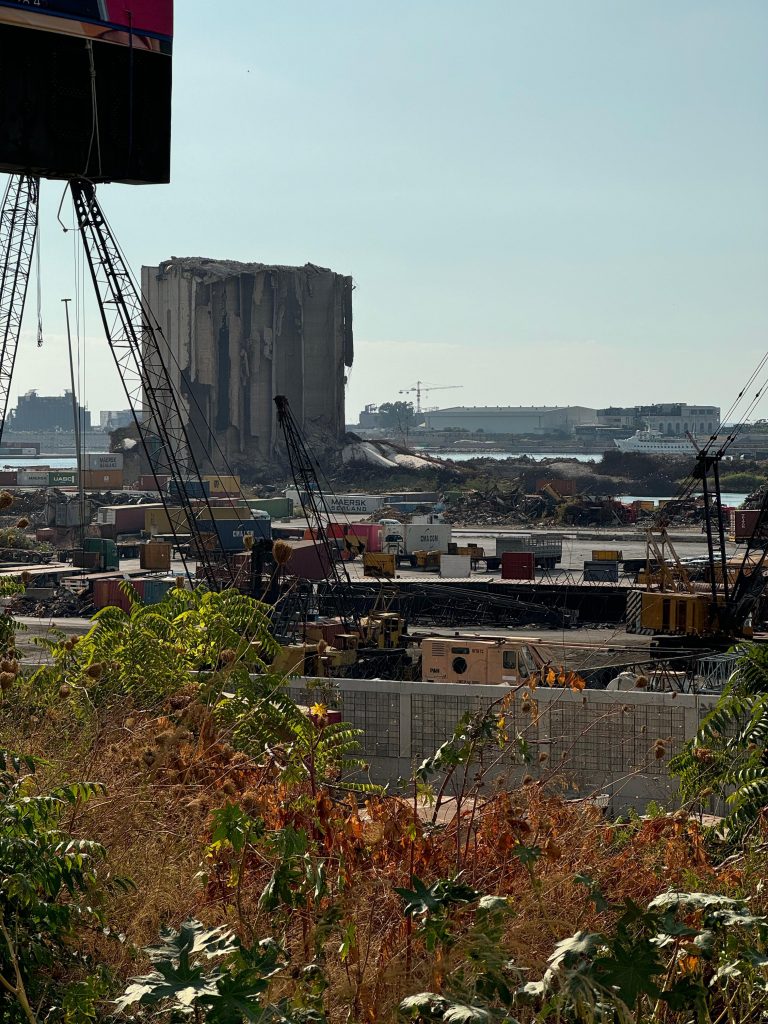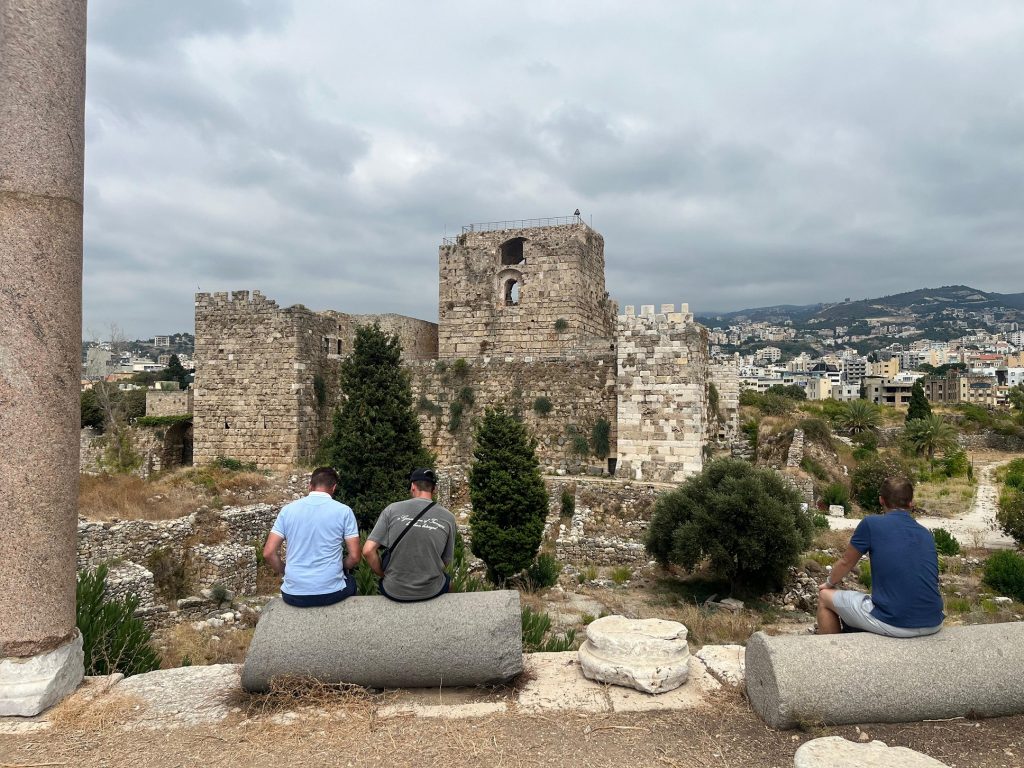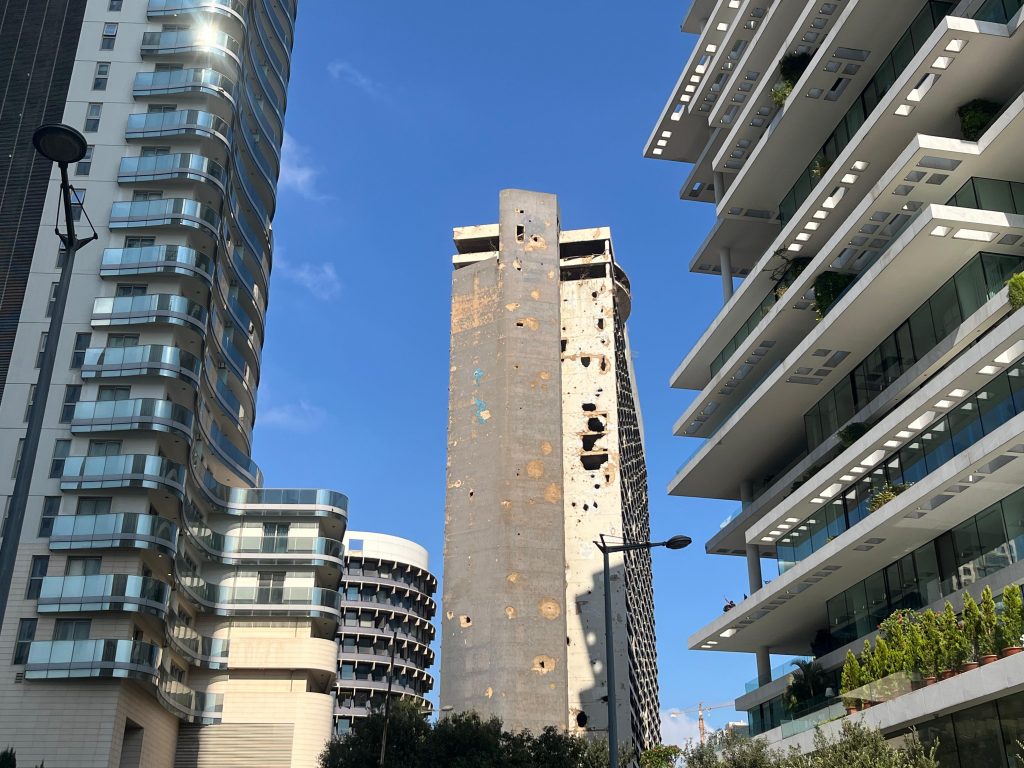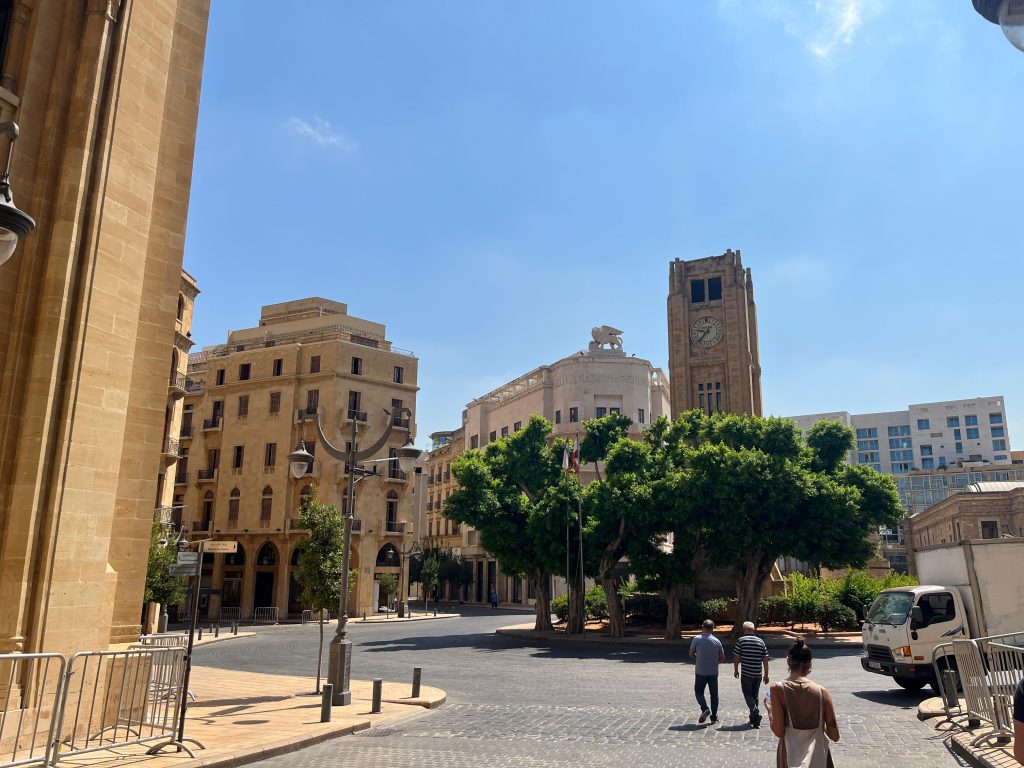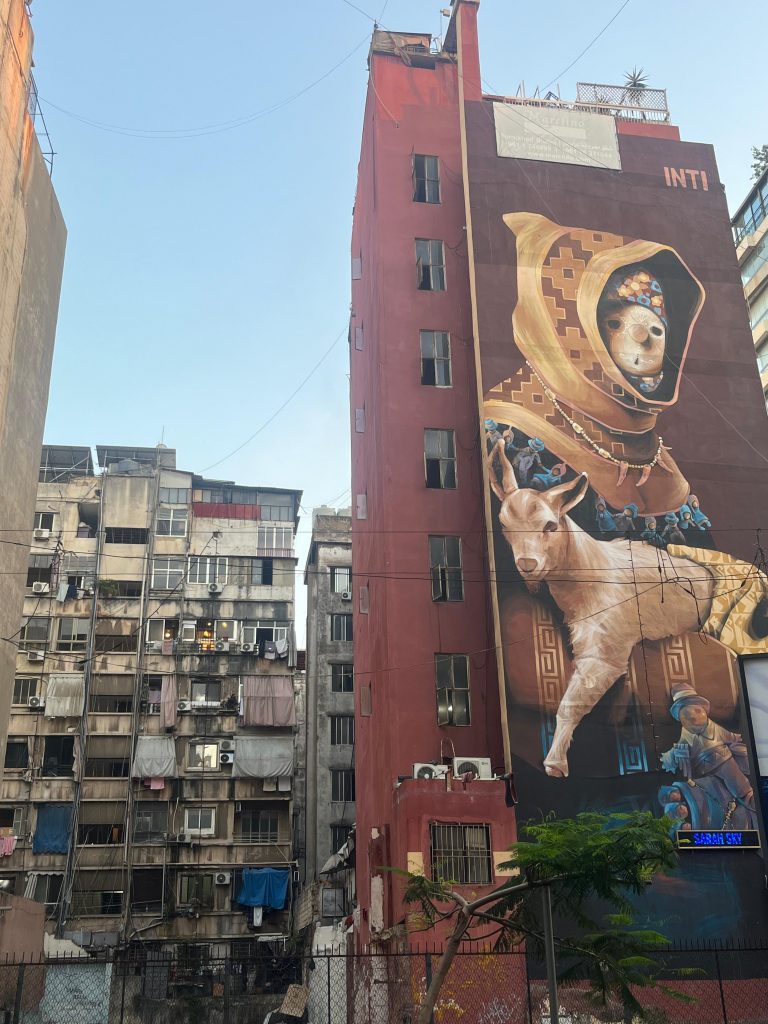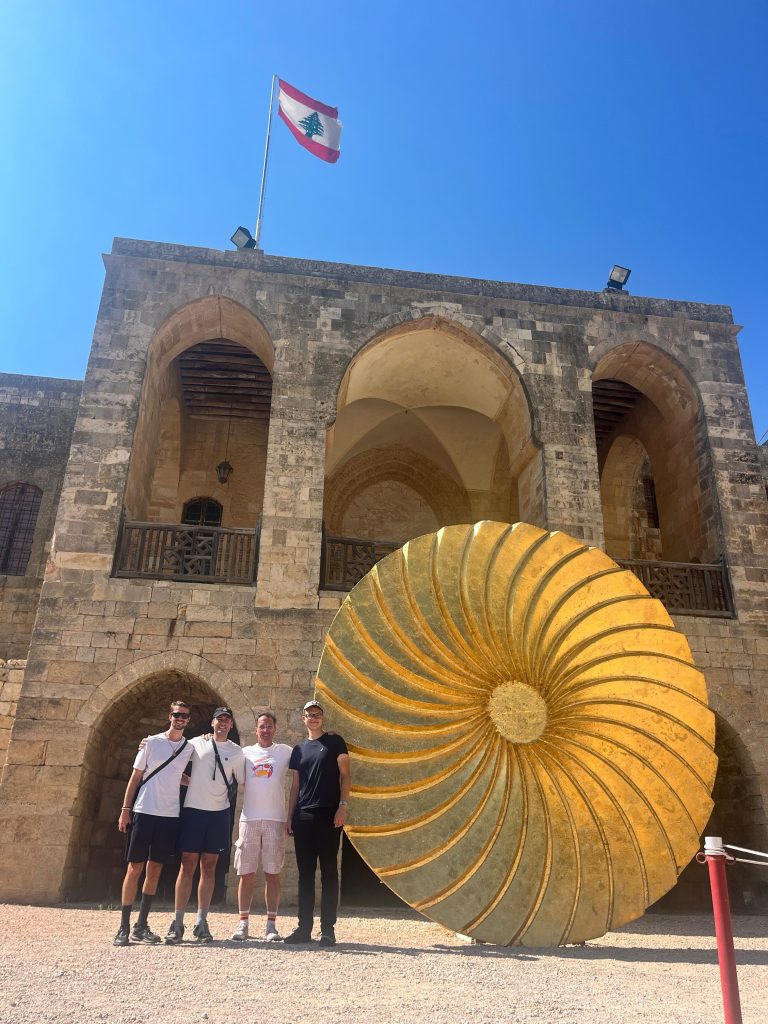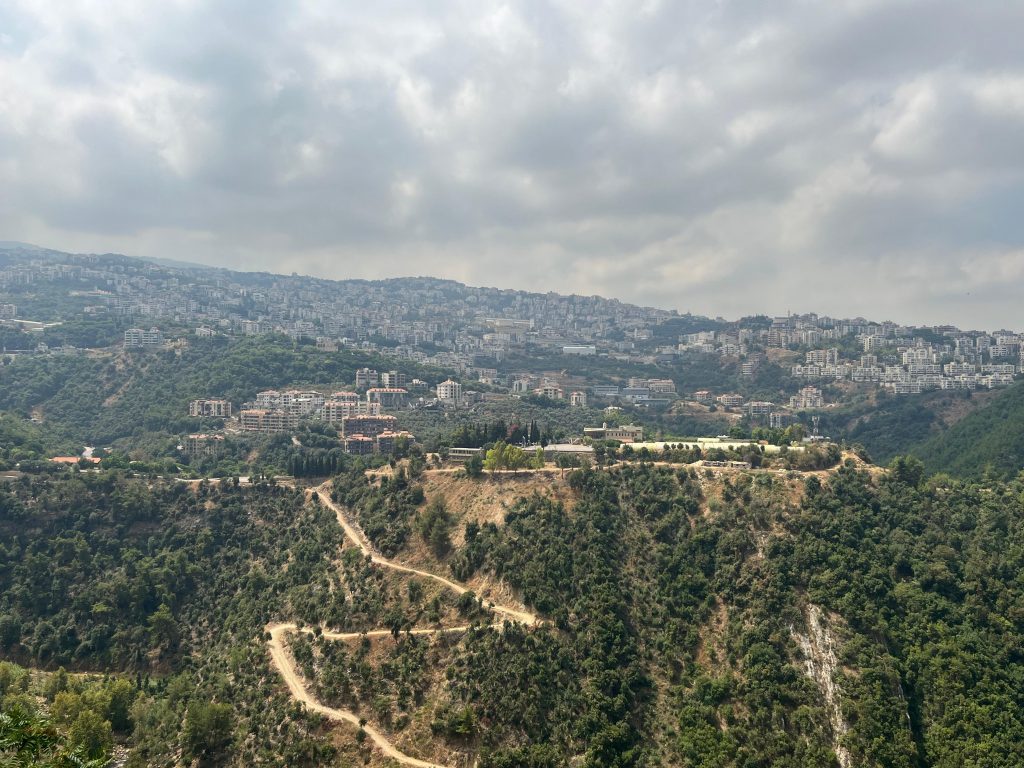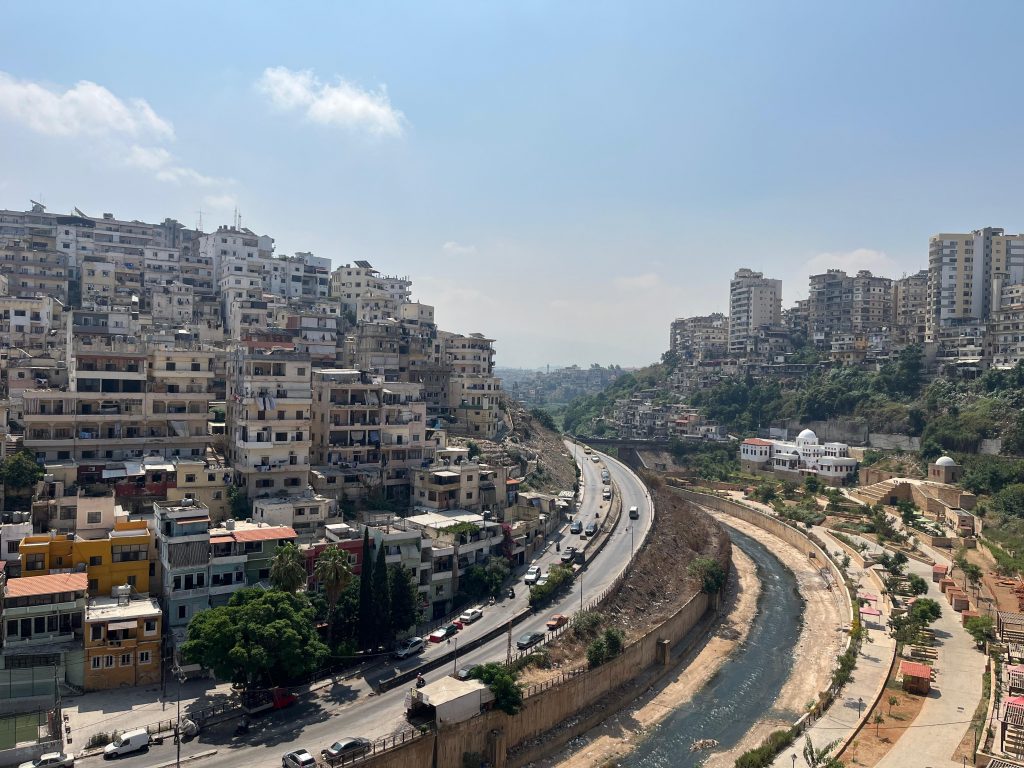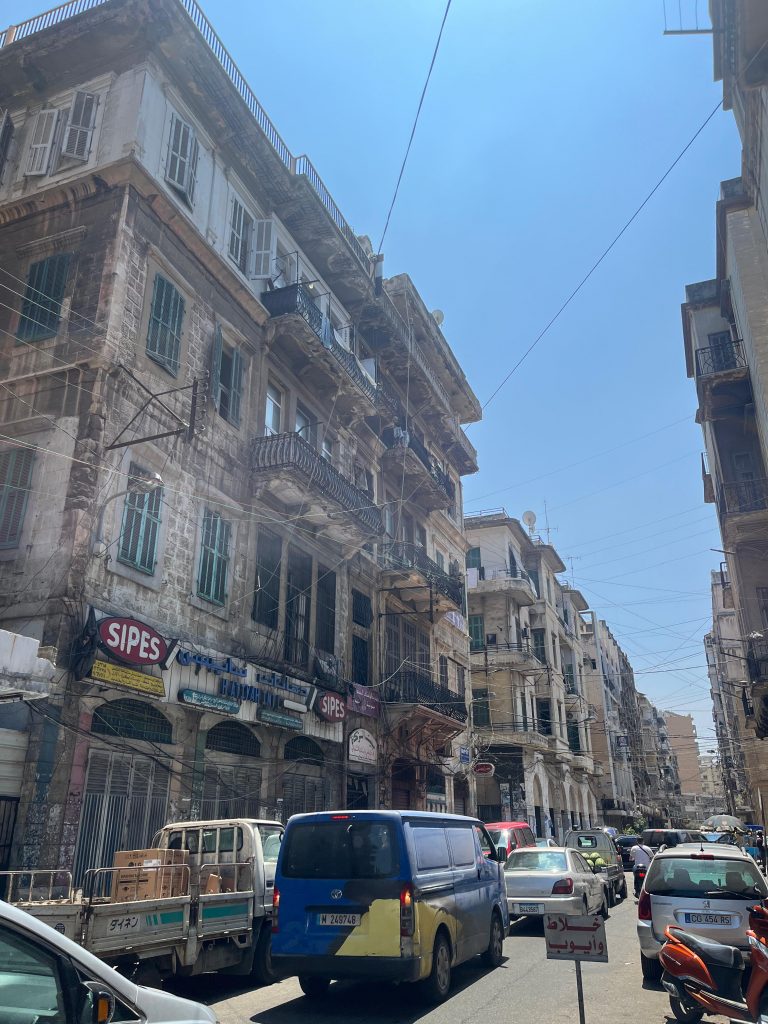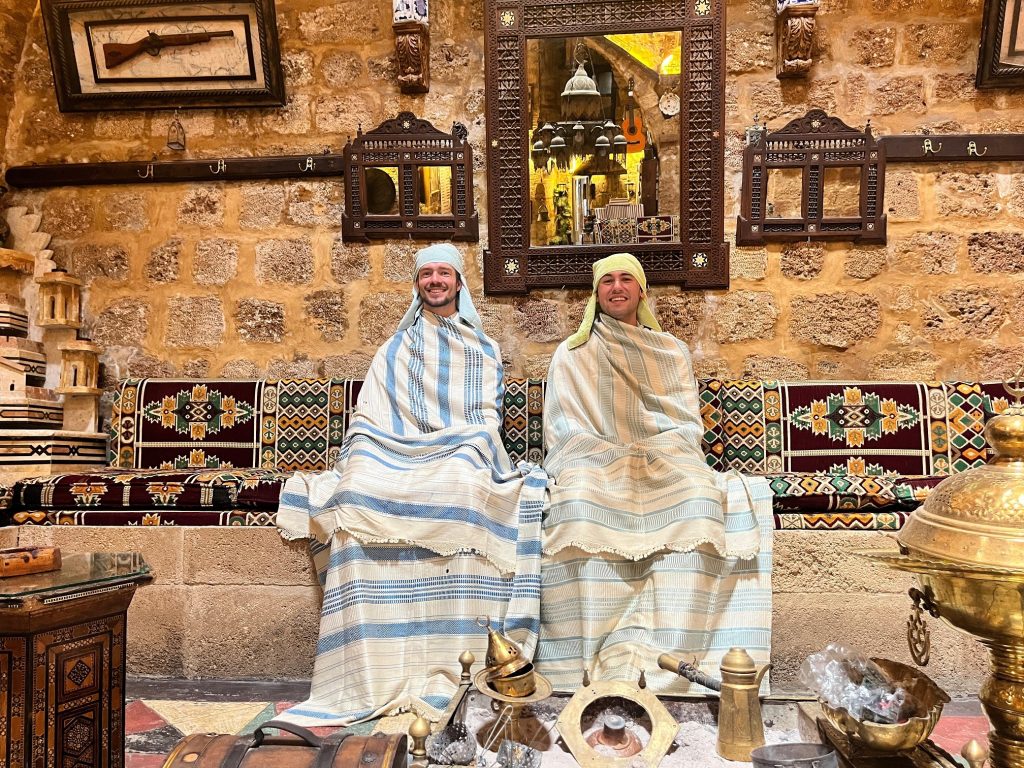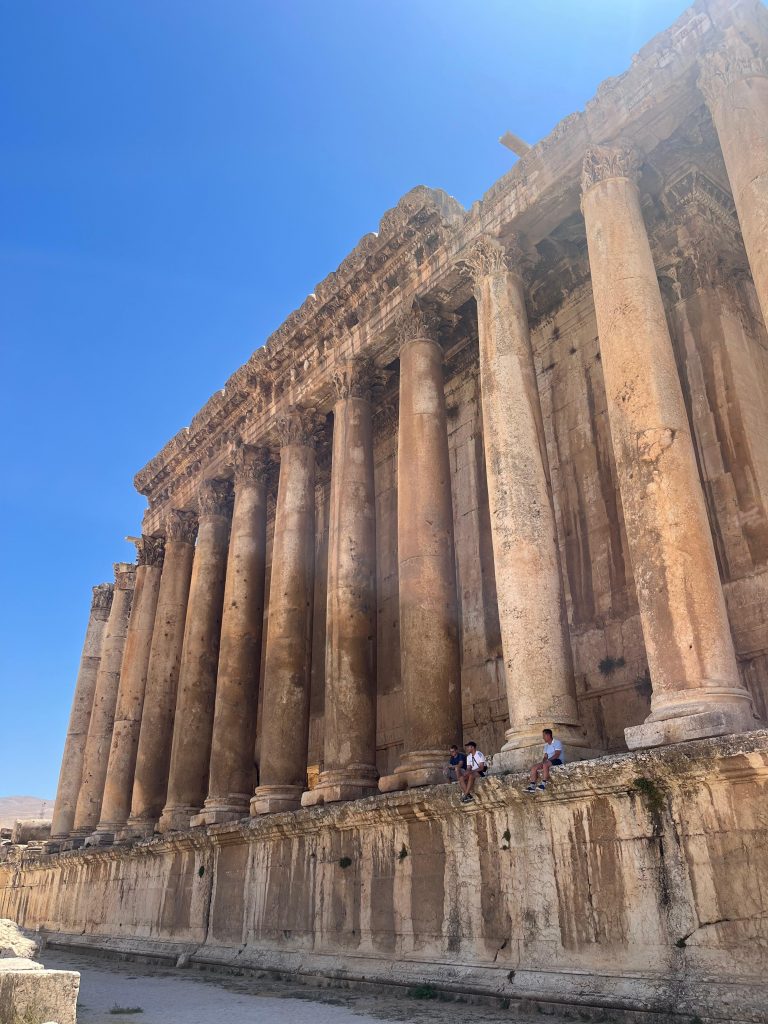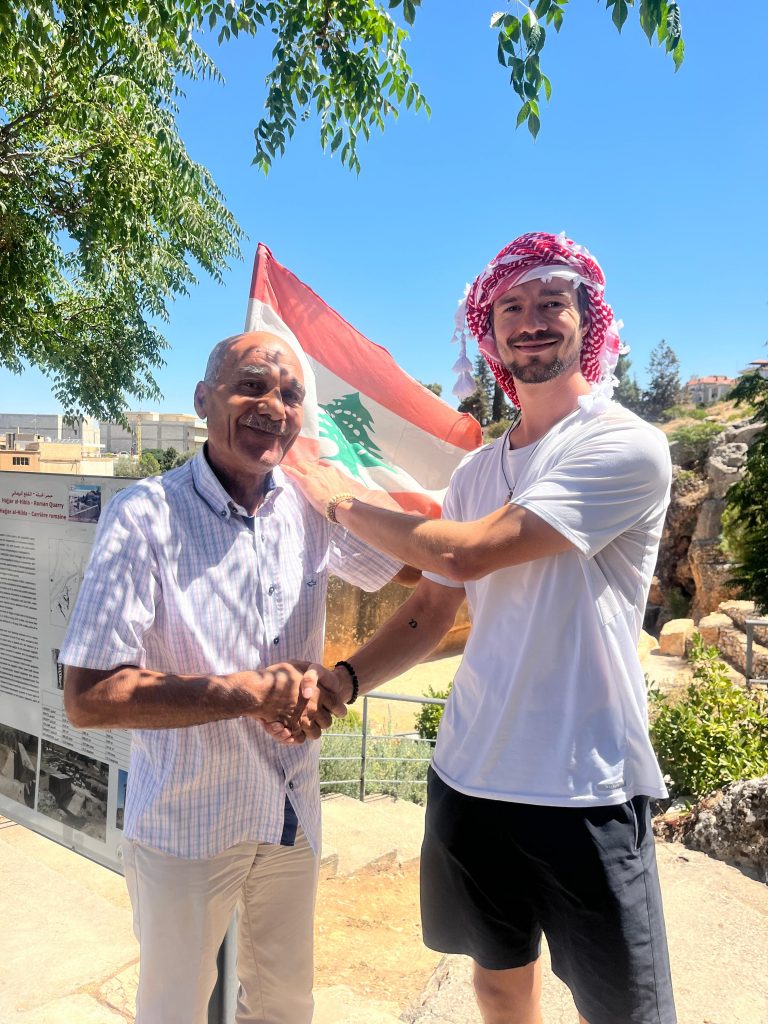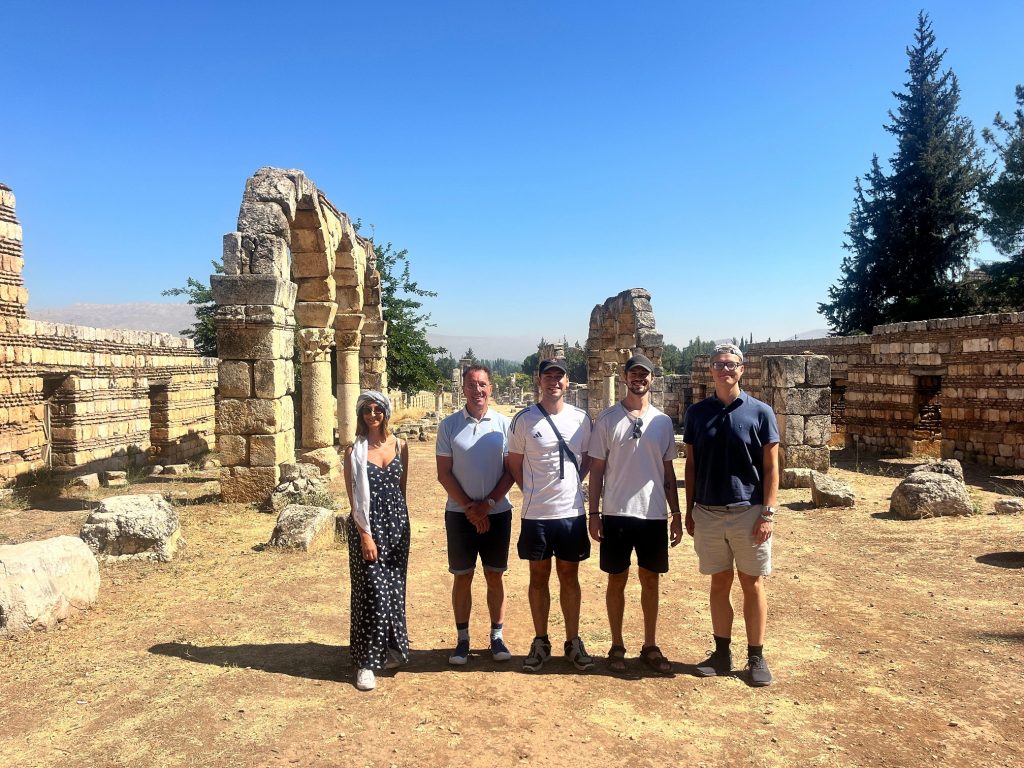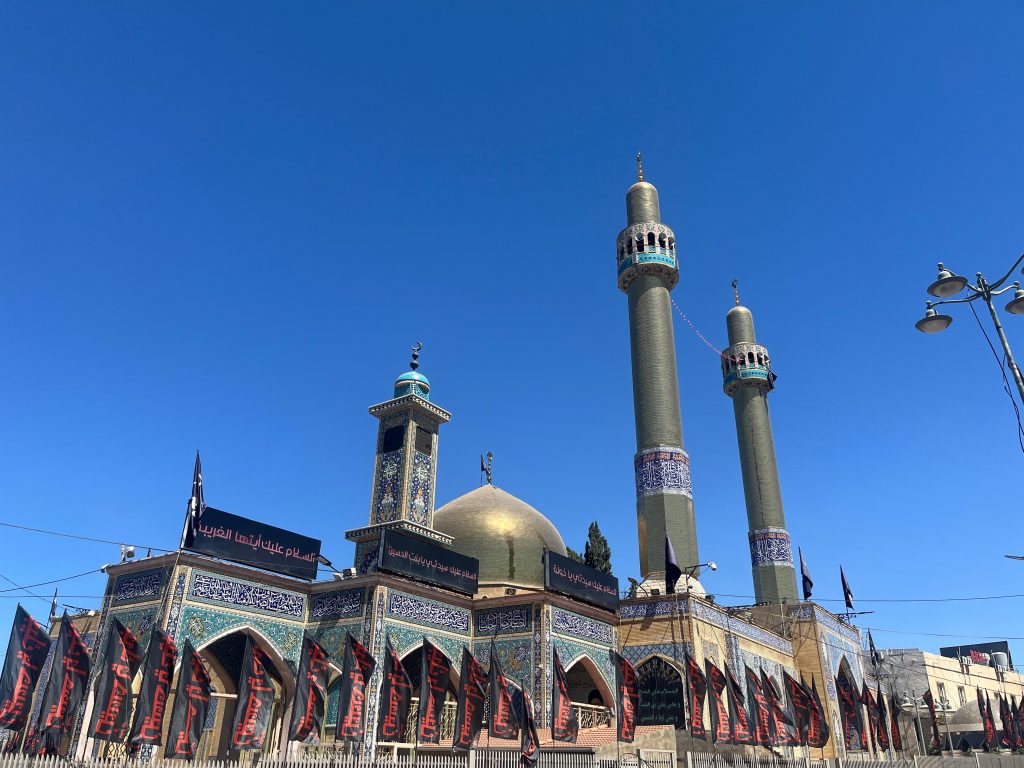People are wondering if it is reasonable traveling to Lebanon during the middle east conflict 2024 and if so, how to realize it. Surely the most common reaction while leading our YPT group tour at the beginning of August were some surprised local faces and people asking why we came during this time and if we were scared. Those questions were asked with a tone of interest and curiosity, but not to further ignite fear or concern.
What’s the situation in Lebanon and in the Middle East?
Of course, YPT have been monitoring and assessing the situation around Lebanon and the Middle East with the advice of our local teams very thoroughly and continuously. Not just before the trips, but also while on it. Safety always being the first premise, we still strive for making fact-based decisions that reflect the reality on the ground.
As conflicts and tensions have unfortunately been part of the region since long, they are not unusual to be in motion while running tours there. Although a variety of embassies were urging their citizens to leave Lebanon at the beginning of August, this was also because (predominantly western) airlines started cancelling their commercial international flights in and out of the country as incidents increased noticeable over the previous days. It should be noted though that local players such as Turkish Airlines, Middle Eastern Airlines (MEA), and other major Middle Eastern airlines did not have major changes in their schedules. Again, they are used to the volatility to a certain extent and keep serving for various reasons.
How were travel logistics organized in and out of the region?
Logistics around the planned tours were still manageable therefore, and so the surprised reaction by locals towards foreigners visiting at this time was to an extent bigger than the real “difficulty” of coming here. Still, many airplanes were medium to quite full, but with Lebanese locals coming home or with those living abroad and paying their regular summer visit. So yes, as a foreigner you were standing out a bit among the people. That rather ignited interest though, leading to many interesting conversations even before touching ground.
Beirut is a very cosmopolitan and international place, which is reflected in the colourful mix of its inhabitants and their roots. As our group consisted of some Germans as well, including the YPT guide, we were drawn into many conversations by German-speaking Lebanese people, sharing their opinions and stories with us very openly. The exposure and connection we felt to local life was quite a privilege, the offers of helping us around and reassurances of things still going their way never ceased to stop.
What is life like for the locals amongst the conflict in the Middle East?
Overall, life goes on in the country, no matter what. The people have developed a strong resilience, and a character of persistency. Our local guide drew the comparison of the firm roots and flexibility of Lebanese people, also represented by the national symbol on its flag – the cedar tree. So, while being on the ground and exploring the country, nothing really seemed very unusual. People went to work, drank their coffee, shared food, conversed at the streets, and went grocery shopping. No one bought in bulks, supplies were available to the same extent as usual. As mentioned before, the situation hasn´t really been easy in the last years (and decades) anyways, but people had adapted since long.
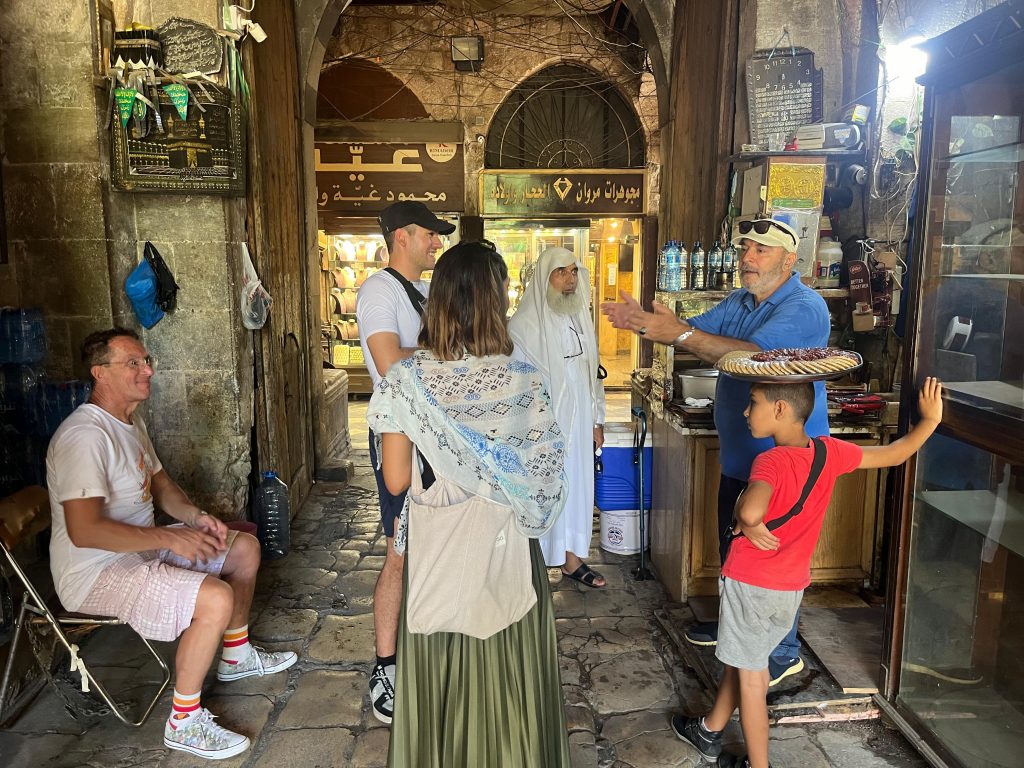
How was travelling as a foreign visitor in Lebanon in August 2024?
Naturally, many sites and places we visited were quite empty. Given the fact that not every local goes to palaces, archaeological sites, or museums multiple times a week, this was not surprising. Rarely did we meet visiting foreigners, but still saw people from the residing expat communities in Beirut.
Receptions and greetings by the Lebanese for us were warm and friendly, as is their customs, and a certain gratitude could be felt towards our group for still considering their country as a place worth to visit. Since the struggling economy also heavily depends on tourism and service industry, the severe impact of a lack of visitor’s can´t be underestimated. This could be noticed while seeing many people on the streets, struggling for making even a slight income through whatever service or goods they could offer.
Travelling in Lebanon and having a viewpoint, palace, or whole grotto to ourselves surely was an experience and provided an exclusive atmosphere, but the sometimes quite empty cafés, restaurants, and stores are somewhat catastrophic for its owners and average citizens making their living through them. These impressions were constantly reconfirmed by many taxi drivers and (service) employees when we ventured out along the days, comparisons were drawn to the summer before, when visitor numbers were high and the mood even higher.
As far as some of these opinions go that people shared with us, big differences could be heard of their personal “evaluation” of involved players and their actions within Lebanon and the whole region. Whether the average citizen broadly benefited from it could at least be doubted. But mind you, local people were still enjoying the vibrant nightlife and the great local cuisine, if affordable for them. It was a privilege for the group to see how people adapted to the circumstances and that news reports about the current daily life and priorities should at least be taken with a grain of salt.
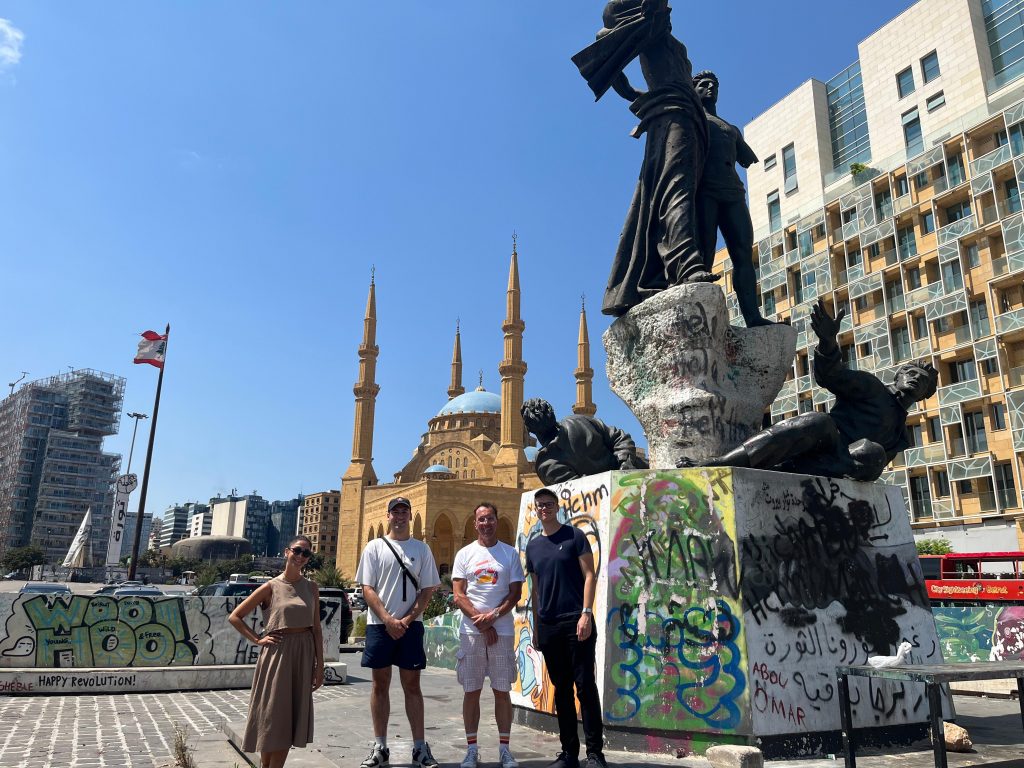
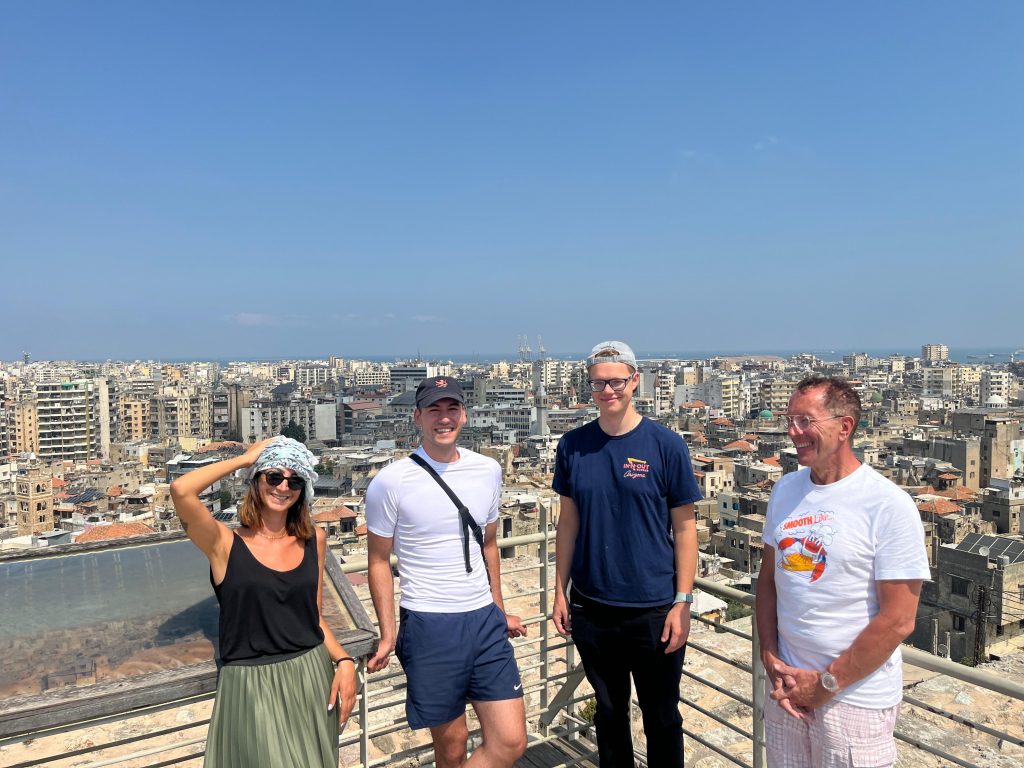
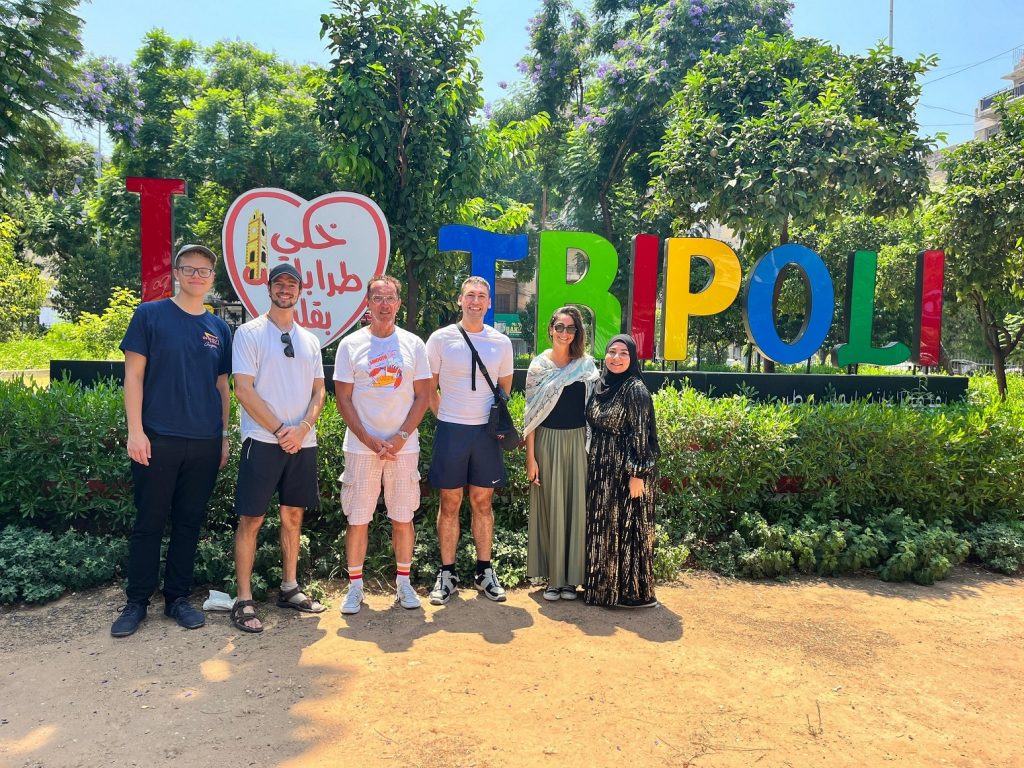
How safe is it to travel Lebanon right now?
As for safety and security, we felt fine in the country, no matter where we went. Plainly spoken, our driver usually didn’t even lock the car when it was parked outside the restaurant or a site we visited. There were moments though that led us to speak with the hotel staff and our local guides: On multiple days, war jets flew over the Lebanon (in itself not unusual), but they did so very low and broke the sound barrier just over Beirut. The resulting booming sounds and vibrations were intense indeed, especially between the densely staggered concrete buildings in the city centre, so even regular citizens stopped halfway and tried to understand what just happened.
Once sure that it was no hit or anything alike, but “just” the passing jets, it only took a few minutes and the situation seemed forgotten. It was mentioned in the news, but didn´t cause much further worries and in the days to come people would rarely look up for more than a few seconds when it happened. On any given day we would see kids running and laughing in the streets, hear Lebanese people discussing life over coffee, and be asked where we are from and if we enjoy their country.
How was the tour concluded and will YPT tours in the Middle East continue?
As for this Lebanon tour, the five days were completed with some pre-agreed changes in the itinerary, deviating further to the north of Lebanon instead of the south, where the situation is more tense. It brought the group to wide parts of the country, offering insights into daily life from local people sunbathing at the beach, to busy farmworkers in the field, youth groups collecting trash, and many and many more praying and gathering in churches and mosques. What definitely stuck with the group were the unison voices and smiles of locals, wanting to ensure that we come back another time, to experience their country in an even more charming and exhilarating state.
Also, the consecutive YPT Syria tour was going ahead as planned as per writing of this blog. Negotiation and ceasefire talks for the involved parties were about to be organized by the various mediating nations such as USA, Egypt, and Qatar, sparking hope for some release of current tensions.
YPT will stay close to the developments of the situation and provide updates in this blog. See our upcoming Lebanon tours here, as well as to Syria and Iran in 2025 and 2026.
